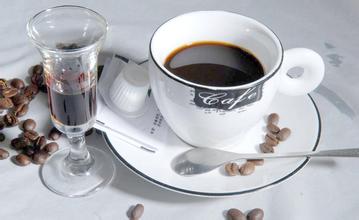Introduction to the flavor and taste of the coffee growing environment in Lazimus Manor, Colombia.
In his letter from Jamaica in 1815, Bolivar envisioned that when South America was liberated from Spanish colonial rule, New Granada and Venezuela should form a country, named Colombia. In August 1819, Bolivar's Patriotic Army defeated the Spanish colonial army at the Battle of Boyaca and liberated Bogota. As a result, New Granada and most of Venezuela have been liberated. With the consent of the patriotic army and people of New Granada, Bolivar proposed in the Venezuelan Congress held in Angostura in December of the same year that Venezuela and New Granada unite to form a unified country. On December 17, Congress passed a resolution formally establishing the union of the two regions.
The Republic of Colombia. In May 1821, the State of Colombia held a Constituent Assembly in Kukuta, the interim capital, which adopted and promulgated the first Constitution of Colombia on August 20. The Constitution provides for a centralized republic and a series of decrees declaring the abolition of slavery, the liberation of slaves and their children, the prohibition of slave trade, and the equal rights of citizens, with freedom of speech and the press. The meeting elected Bolivar as the first President of the Republic and Santander as Vice President. In May 1822, General Bolivar Sucre led the army to liberate Quito, and Ecuador announced to join the Republic of Colombia.
In 1823, at the request of the Peruvian Patriots and with the approval of Congress, Bolivar led Colombian troops into Peru to fight against the Spanish colonial army.
In 1824, the Colombian and Peruvian coalition forces defeated the Spanish colonial army, and Peru gained independence. During the war with Bolivar's army in Peru, Santander took over as president and presided over the affairs of Colombia. Santander advocated the establishment of a federal regime and United local forces against Bolivar's political proposition of unity and unity. Factional struggles within the Colombian Congress and government have become increasingly acute.
In April 1826, the local rulers of Venezuela, headed by Pais, and those who opposed the new Granada, headed by Santander, demanded the establishment of a separate state. Through the mediation of Bolivar, separatist activities have been temporarily stopped, but internal contradictions and factional struggles still exist.
Colombia, located in the northwest of South America, is a beautiful country with a long history. Indians have lived on this land since ancient times. It was colonized by Spain in 1531 and gained independence in 1819. It was renamed in 1886 to commemorate Columbus, the discoverer of the American continent. In 1808, a priest introduced coffee to Colombia for the first time from the French Antilles via Venezuela.
Colombia has four treasures: flowers, gold, emeralds and coffee. You can see the importance of coffee Colombia. And there may be very few coffee in the world named after a country, such as Nestle Coffee and Blue Mountain Coffee are not named after a country. Colombia is the first country to use the name of the country as a brand of coffee. Colombian coffee is famous for its quality, taste and high taste. Colombia's coffee production occupies a very important part of the country's economic life, with annual exports of about 1.5 billion US dollars, accounting for a large proportion of its foreign trade.
Just as only wine produced in the champagne region of France can be called champagne, only coffee produced in Colombia and picked by hand can be called "Colombian coffee". Colombian coffee is one of the few original coffee sold in the world under the name of the country. In terms of quality, it has won praise unmatched by other coffees. today, Colombia is the world's third largest coffee producer and exporter, the world's largest exporter of Arabica coffee beans and the world's largest exporter of washed coffee beans.
The unique geographical environment creates Colombian coffee.
Colombia has beautiful mountains and rivers, beautiful scenery, pleasant climate, spring all year round, fresh air and refreshing air. Colombia's mild climate, humid air, and diverse climate make it a harvest season all year round, with different kinds of coffee ripening at different times. What they grow is Arabica coffee beans of unique quality, and the coffee made from this coffee bean has a rich taste and endless aftertaste, which can be called fine coffee. Nowadays, many people equate "Colombian coffee" with "high quality" and "good taste".

Important Notice :
前街咖啡 FrontStreet Coffee has moved to new addredd:
FrontStreet Coffee Address: 315,Donghua East Road,GuangZhou
Tel:020 38364473
- Prev

Panama Esmeralda Estate Coffee Flavor Taste Planting Environment Introduction
Panama's current Constitution entered into force on 11 October 1972 and has been amended four times, in 1978, 1983, 1994 and 2004. The Constitution stipulates that the three powers of the state are separated. The president is the head of state. He is elected directly for a term of five years and cannot be re-elected. However, he can run for alternate terms.
- Next

Rich and clean taste of coffee growing area of Paradise Bird Manor in Papua New Guinea
Papua New Guinea is an island country in the western South Pacific and a member of the Commonwealth. The name of the country consists of Papua and New Guinea. There are many small islands here, about 600 in size. It is adjacent to Indonesia and Australia to the south. It belongs to the Asia-Pacific region, but it is a country in Oceania. Located in the tropical climate, high temperature and rainy. Rich and rich volcanic rock and soil
Related
- Does Rose Summer choose Blue, Green or Red? Detailed explanation of Rose Summer Coffee plots and Classification in Panamanian Jade Manor
- What is the difference between the origin, producing area, processing plant, cooperative and manor of coffee beans?
- How fine does the espresso powder fit? how to grind the espresso?
- Sca coffee roasting degree color card coffee roasting degree 8 roasting color values what do you mean?
- The practice of lattes: how to make lattes at home
- Introduction to Indonesian Fine Coffee beans-- Java Coffee producing area of Indonesian Arabica Coffee
- How much will the flavor of light and medium roasted rose summer be expressed? What baking level is rose summer suitable for?
- Introduction to the characteristics of washing, sun-drying or wet-planing coffee commonly used in Mantenin, Indonesia
- Price characteristics of Arabica Coffee Bean Starbucks introduction to Manning Coffee Bean Taste producing area Variety Manor
- What is the authentic Yega flavor? What are the flavor characteristics of the really excellent Yejasuffi coffee beans?

